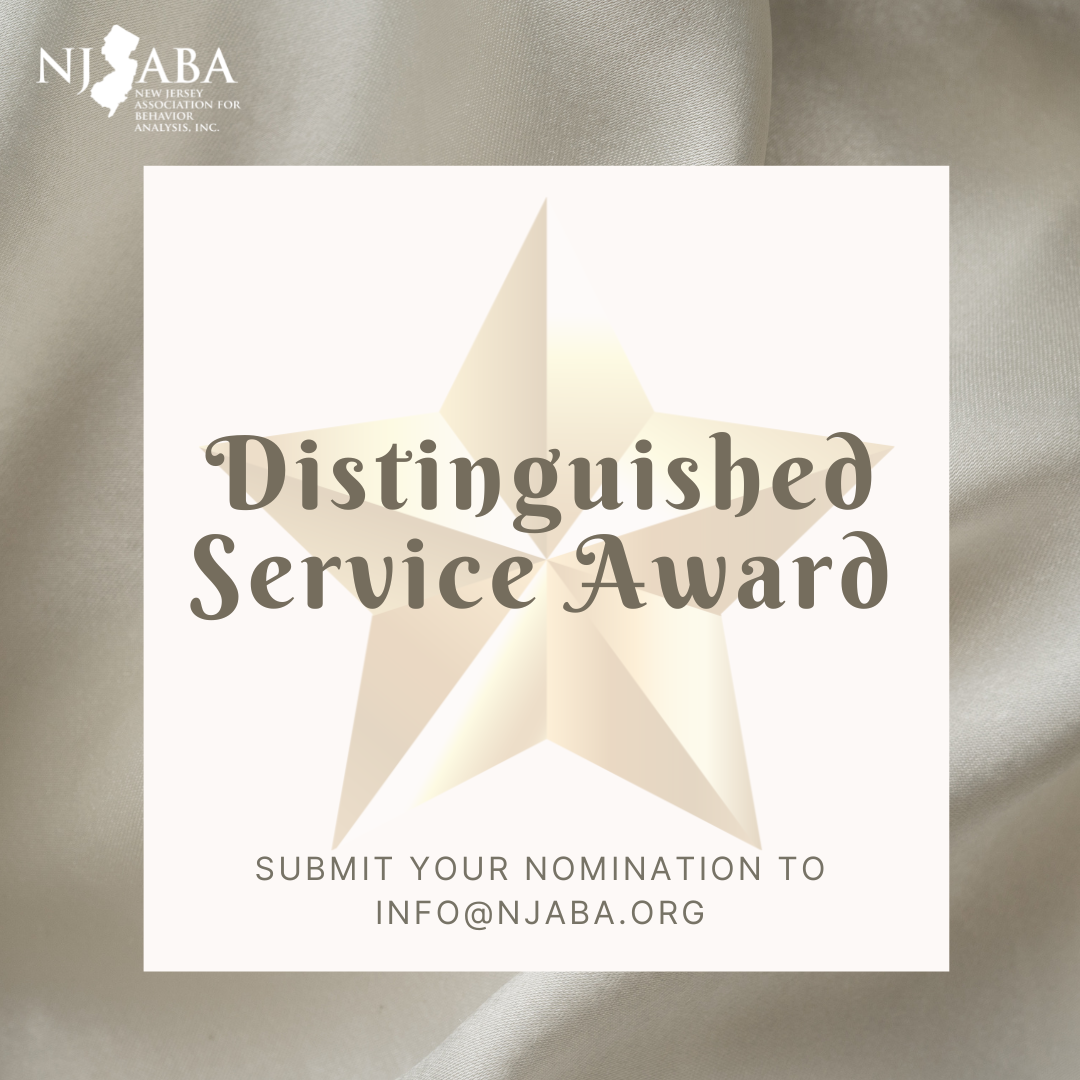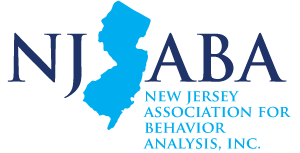As the Events Chair, Erin Richard White, Ph.D., BCBA-D compiled this information. Please feel free to reach out with your ideas, questions, and more.
Within this section, you can expect to find:
Annual Conference
The 17th Annual NJABA Conference was hybrid! If you registered for the Conference, you will have access to all content and CEUs until October, 2022 at no additional cost.
If you did not purchase a Conference ticket you can still access all content and CEUs a la carte via BehaviorLive.

Keynote Speaker
Shahla Ala’i-Rosales, Ph.D., BCBA-D, LBA, received her B.S. from Southern Illinois University and her M.A. and Ph.D. from the University of Kansas. She is an Associate Professor in the Department of Behavior Analysis at the University of North Texas. Shahla and her students collaborate with community partners to serve people who are under resourced and marginalized within current societal structures. Shahla is a member of an interdisciplinary lab that includes faculty and students from Woman’s and Gender Studies, Applied Anthropology and Behavior Analysis. Shahla teaches courses on technology transfer, ethics, autism intervention, parent training, behavioral systems, applied research methods, behavior change techniques, and assessment. Shahla has served on several boards and disciplinary committees, most notably the BACB Board of Directors, the ABAI Practice Board, the ABAI Diversity, Equity and Inclusion Board and the OAR Scientific Council. She has published and presented research on social justice, ethics in early intervention, play and social skills, family harmony, change agent training, supervision and the relationship between love and science in the treatment of autism. She co-authored a book on supervision and mentoring and another on responsibility and responsiveness in the parenting and autism. Shahla has over four decades of experience working with families and has trained hundreds of behavior analysts. She was awarded an Onassis Foundation Fellowship for her work with families, was the recipient of UNT’s prestigious “’Fessor Graham” teaching award, received the 2019 Texas Association for Behavior Analysis Career Contributions award, and the UNT 2020 Community Engagement award.

Presentation: Caring Hearts at the Intersection of Autism and Culture
Abstract:
What are the relations between science, ethics and progress in Applied Behavior Analysis? How does this relate to Autism? To explore this question, we look at the progression of intensive interventions in autism. This will include: an overview of the changing foundational premises of our discipline; the emergence, impact and metamorphosis of early intervention configurations; the rapid expansion of services and service providers; and, the concerns voiced by people of color and autistic people. The proliferation of behavior analysis in autism services has brought both growth and growing pains. When facing the painful dimensions of growth, we can either choose to be complacent or humbly act to progress as an applied science that cares deeply for the people we serve. Concepts complementary to our science, such as social justice, care ethics and womanism, can offer meaningful ways to strengthen our caring hearts to honor individual and the collective.
Learning Objectives:
- To identify the relations between science, ethics and progress in ABA.
- To identify growth and growing pains.
- To identify probable outcomes of different actions in the face of rapid growth.
- To identify resources for advancing caring and progressive scientific practices in ABA.

Our 2022 recipient was Dr. Sandra Harris for her work in developing supports for individuals with autism

